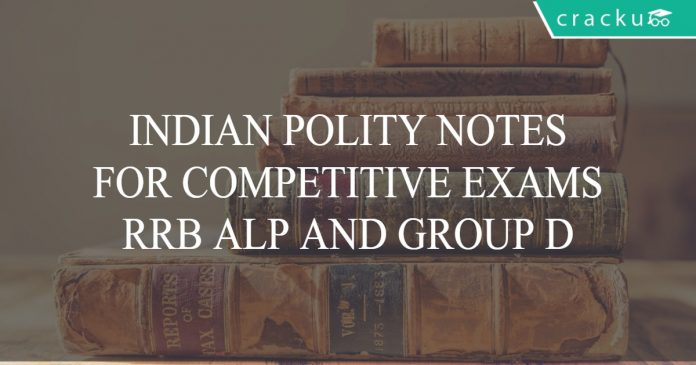


All the important notes on Indian constitutions, needed for all competitive exams.
Following are the Important Sub Committees of the Constituent Assembly and their Heads:
Finance and Staff Committee
Adhoc Committee on National Flag
Union Powers Committee
| First President of Independent India | Dr Rajendra Prasad |
| First Prime Minister of Independent India | Jawaharlal Nehru |
| First Education Minister of Independent India | Maulana Abdul Kalam Azad |
| First Home of Independent India | Sardar Vallabhbhai Patel |
| First Foreign Minister of Independent India | Jawaharlal Nehru |
| First Commerce and Industry Minister of Independent India | Syama Prasad Mukherjee |
| First Finance Minister of Independent India | Shanmukham Chetty |
| First Health Minister of Independent India | Amrit Kaur |
| First Indian Governor General of Independent India | C Rajagopalachari |
| Government of India Act – 1935 which is the last constitution of British India lasted till 1947. All Acts before this act are called as – East India Company Acts |
| Present Comptroller Auditor General of India | Rajiv Mehrishi |
Indian constitution and Featured Borrowed:
Important Articles of the Indian Constitution are compiled as:
| PARTS | ARTICLES | SUBJECT |
| I | 1-4 | THE UNION AND ITS TERRITORY |
| II | 5-11 | CITIZENSHIP |
| III | 12-35 | FUNDAMENTAL RIGHTS |
| IV | 36-51 | DIRECTIVE PRINCIPLES OF STATE POLICY |
| V | 51-A | FUNDAMENTAL DUTIES |
| 79-122 | PARLIAMENT | |
| 148-151 | COMPTROLLER AND AUDITOR GENERAL OF INDIA | |
| 168-212 | STATE LEGISLATURE | |
| 213 | LEGISLATURE POWERS OF THE GOVERNOR | |
| 214-231 | HIGH COURTS IN THE STATE | |
| 239-241 | UNION TERRITORIES | |
| 243-243(O) | THE PANCHAYATS | |
| X | 244 – 244(A) | THE SCHEDULED AND TRIBAL AREAS |
| XV | 324-329 | ELECTIONS |
| XVIII | 352-360 | EMERGENCY PROVISIONS |
| XX | 368 | AMENDMENTS OF THE CONSTITUTION |
| XXI | 369-392 | TEMPORARY, TRANSITIONAL AND SPECIAL PROVISIONS |
| IMPORTANT ARTICLES OF THE INDIAN CONSTITUTION | |
| ARTICLE 14 | EQUALITY BEFORE LAW |
| ARTICLE 17 | ABOLITION OF UNTOUCHABILITY |
| ARTICLE 21 | PROTECTION OF LIFE AND PERSONAL LIBERTY |
| ARTICLE 21A | RIGHT TO EDUCATION |
| ARTICLE 23 | PROHIBITION OF TRAFFIC IN HUMAN BEINGS AND FORCED LABOUR |
| ARTICLE 44 | UNIFORM CIVIL CODE FOR ALL CITIZENS |
| ARTICLE 48A | Protection and improvement of environment and safeguarding of forests and wild life |
| ARTICLE 50 | SEPERATION OF JUDICIARY FROM EXECUTIVE |
| ARTICLE 51 | PROMOTION OF INTERNATIONAL PEACE AND SECURITY |
| ARTICLE 51 | ELECTION OF PRESIDENT |
| ARTICLE 66 | ELECTION OF VICE- PRESIDENT |
| ARTICLE 72 | Power of President to grant pardons, etc. and to suspend, remit or commute sentences in certain cases |
| ARTICLE 74 | COUNCIL OF MINISTERS TO AID AND ADVISE THE PRESIDENT |
| ARTICLE 76 | ATTORNEY GENERAL OF INDIA |
| ARTICLE 79 | CONSTITUTION OF PARLIAMENT |
| ARTICLE 80 | RAJYA SABHA-COMPOSITION OF THE COUNCIL OF STATES |
| ARTICLE 81 | LOKSABHA-COMPOSITION OF HOUSE OF PEOPLE |
| ARTICLE 124 | ESTABLISHMENT AND CONSTITUTION OF SUPREME COURT OF INDIA |
| ARTICLE 300A | RIGHT TO PROPERTY |
| ARTICLE 315 | PUBLIC SERVICE COMMISSIONS FOR THE UNION AND THE STATES |
| THE VOTING AGE OF THE ELECTORATE WAS REDUCED FROM 21 YEARS TO 18 YEARS BY THE 61 ST CONSTITUTIONAL AMENDMENT IN 1988 | |
| RIGHT TO EDUCATION OF CHILDREN FROM THE AGE OF 6 YEARS TO 14 YEARS WAS MADE A FUNDAMENTAL RIGHT BY THE 86 TH AMENDMENT IN 2002 | |
v There are 11 Fundamental Duties envisaged for the Citizens of India in the Constitution of India
v The 12 th fundamental duty has been added to the Constitution of India by the 86th constitutional amendment in 2002
v Fundamental Rights are written in Part III and Articles 12-35 of the Indian Constitution
| Present Attorney General of India | K. K. Venugopal – 15 th |
| Present Solicitor General of India | Ranjit Kumar |